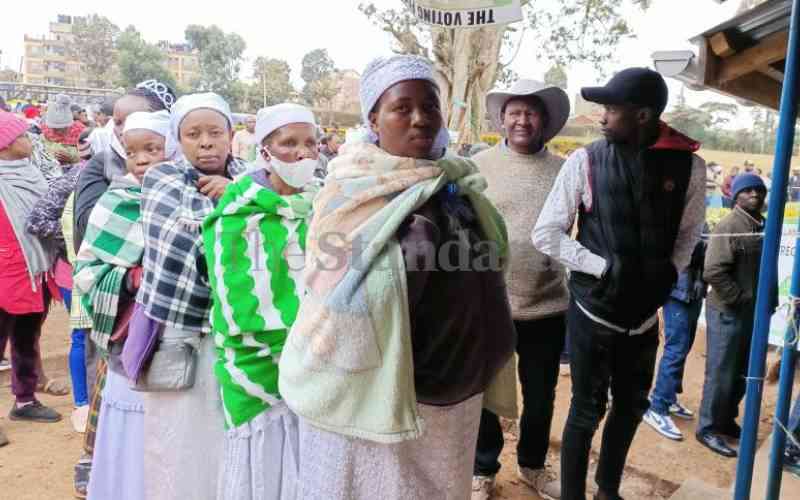×
The Standard e-Paper
Stay Informed, Even Offline

They stood out as they queued to vote in various polling stations in Kinoo ward, Kikuyu constituency, in Kiambu County.
This was the first election members of the Shona community were taking part in since they arrived in Kenya about 50 years ago.